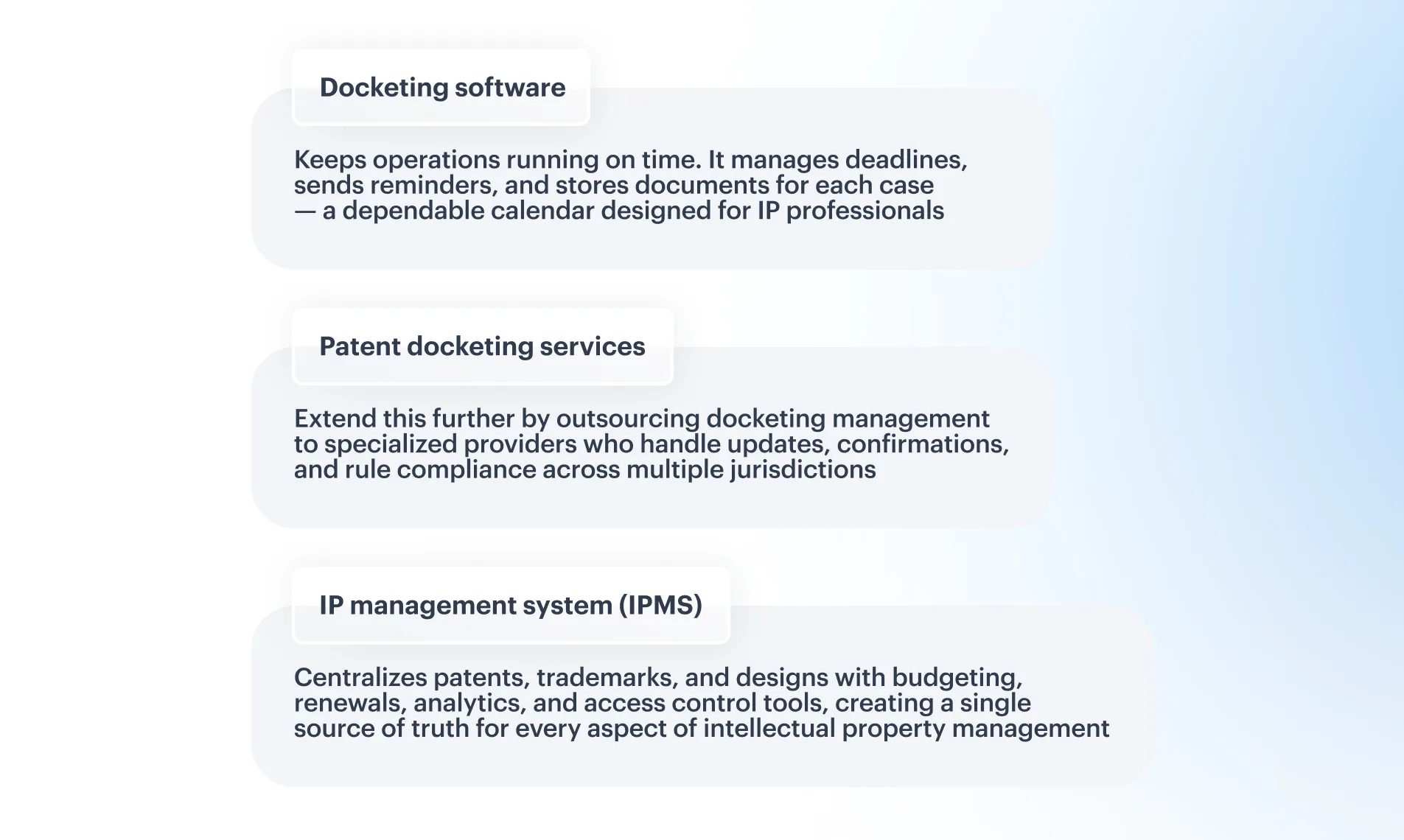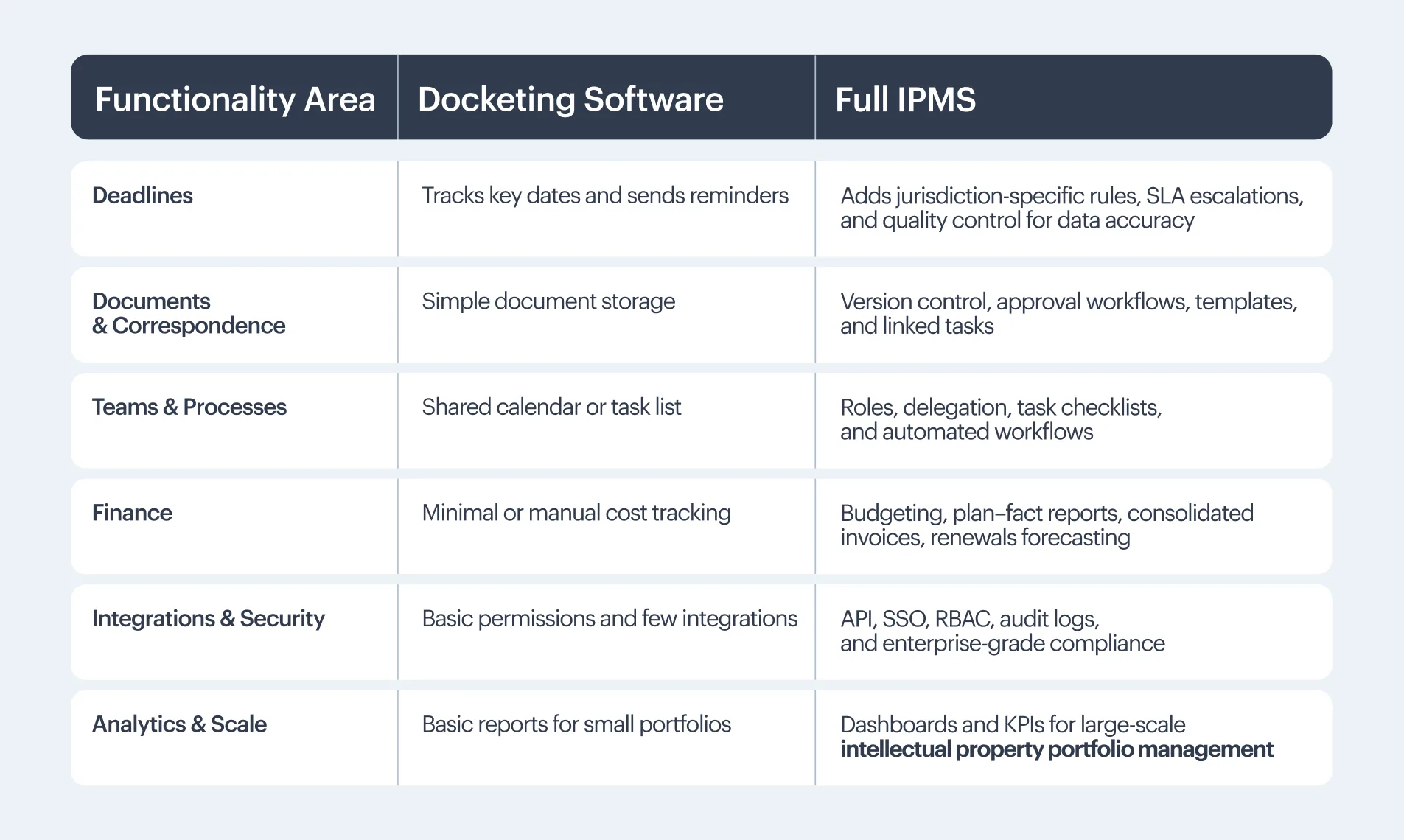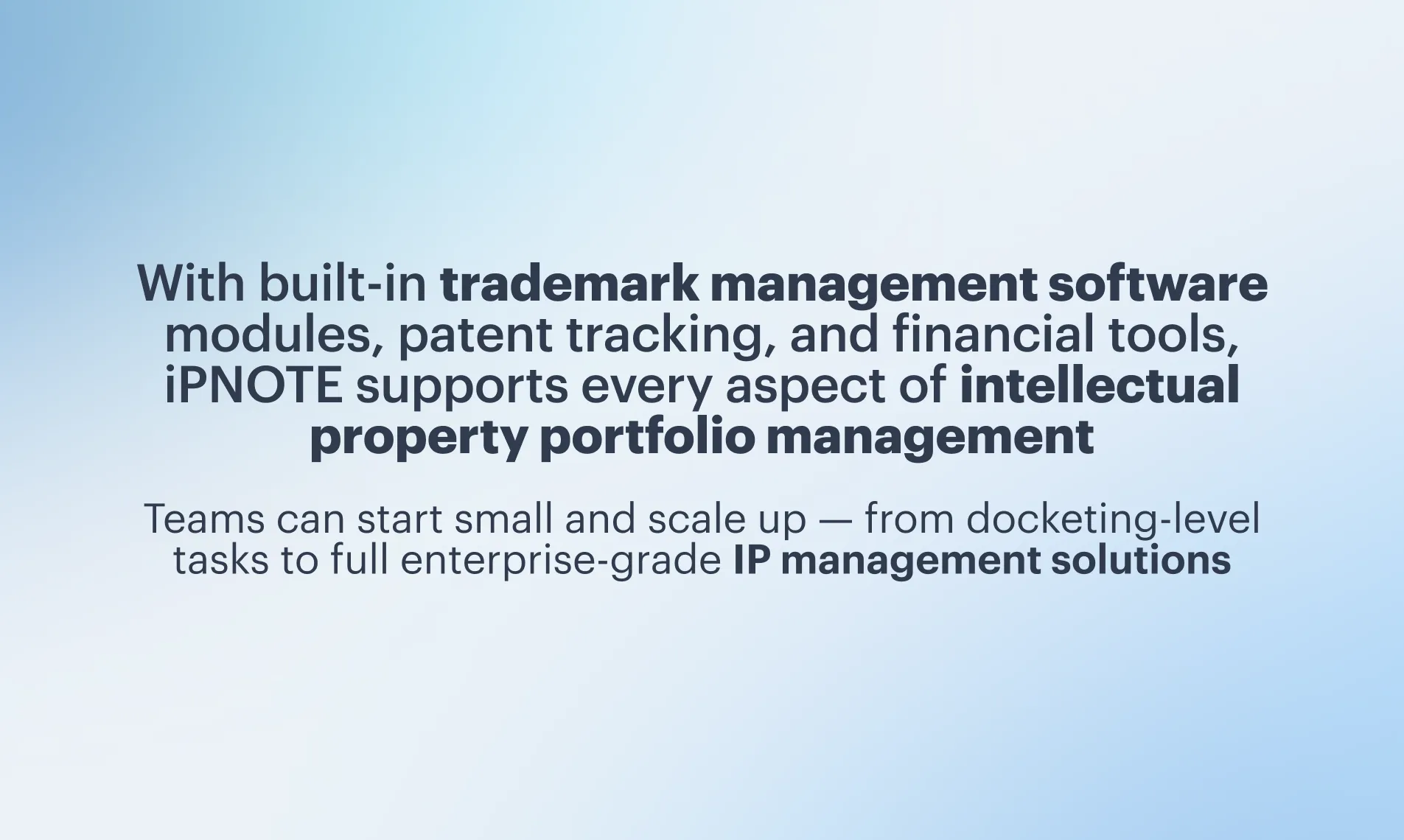Where Companies Usually Get It Wrong
Many teams start by searching for a simple tool to track deadlines, assuming that’s all IP management requires.
But as filings multiply across regions and reports begin landing on the CFO’s desk, the same teams realize that tracking dates is not the same as managing an entire IP function.
The result is confusion: companies either overpay for features they never use or choose a minimal solution that cannot support growth.
This article explains the real difference between patent docketing services and a full IP management system (IPMS) — where the boundaries lie, which functionality truly matters, and how to avoid overspending while keeping full control of your IP portfolio.
Simple Definitions

Where the Real Boundaries Lie
The distinction between docketing tools and IP management solutions becomes clear in daily operations:

Who Really Needs What
For small teams handling a limited number of cases, docketing software or patent docketing services cover the essentials — keeping everyone aware of deadlines and centralizing documents.
If most work is handled by external counsel, docketing provides exactly what you need: reliable reminders without administrative overhead.
Larger or fast-growing companies, however, outgrow that simplicity quickly. As filings and agents multiply, information becomes fragmented and reports become inconsistent.
At that point, a comprehensive IP management solution unifies deadlines, budgets, and communication under one platform, giving teams a single source of truth across brands and countries.
Addressing Common Concerns About Adoption
Many IP professionals hesitate to move toward a full IPMS due to concerns about complexity, cost, or reliability — all largely outdated.
Modern systems like iPNOTE offer intuitive interfaces, role-based access, and no-code configuration, allowing teams to get started within hours.
Transparency solves the fear of overpaying: the total cost of ownership can be easily calculated. Teams that only need docketing can start small, while those managing renewals, budgets, or trademarks can scale within the same ecosystem.
Automation anxiety is another myth. Reliable IP management solutions combine rule-based automation with manual verification, providing dual control over critical data.
And since modern systems export data in open formats like CSV or JSON, vendor lock-in is no longer a concern.
The Economics and ROI
The ROI of intellectual property portfolio management is clear once you move beyond spreadsheets.
Companies that upgrade from manual tracking or basic docketing tools report:
- Fewer missed deadlines,
- Faster reporting cycles,
- Lower administrative workload.
Legal and finance teams gain visibility across providers and countries, while operations teams save dozens of hours each month.
This translates directly into measurable financial results — stable renewal budgets, consistent compliance, and reduced risk exposure.
For most organizations, the transition to an integrated IP management solution pays for itself within a year.
How to Decide: Docketing or IPMS?
Your choice depends on scope and growth plans.
If your main challenge is simply tracking dates, patent docketing services or simple docketing tools will serve you well — they are efficient and cost-effective.
Once you manage multiple jurisdictions, brands, or agents, the limits of docketing become evident. Reports take longer, data becomes inconsistent, and decision-making slows.
That’s when an IP management system — or a combined suite offering both docketing and trademark management software — becomes essential.
Platforms like iPNOTE let you start with core functions and add analytics, renewals, integrations, and budgeting as your IP portfolio expands.
How iPNOTE Scales IP Operations
The iPNOTE platform consolidates all cases in one secure environment. It automatically assigns deadlines per jurisdiction, defines roles and permissions, and lets teams process updates in batches.
Automated alerts and escalation chains maintain discipline, while dashboards deliver real-time analytics by region or business line.

It’s easy to start: a freemium plan allows teams to test real data, migrate pilot cases, and explore workflows without risk or long contracts.
Global Teams, Local Precision
Managing an international IP portfolio demands consistency and precision. iPNOTE was built with this in mind.
All brands, regions, and projects are unified within one secure database with customizable access, SSO, RBAC, and detailed audit logs.
For organizations combining in-house management with outside counsel, iPNOTE provides a shared workspace where deadlines, statuses, and communications stay centralized.
When specialized help is needed, iPNOTE’s marketplace connects you with verified global attorneys under fixed-rate, escrow-secured agreements, expanding your reach without extra complexity.
Conclusion
Docketing keeps deadlines on track, while IPMS brings structure and strategy to the entire IP landscape.
Both have value, but as portfolios grow, visibility and data integration become essential for success.
If you’re unsure which system fits your needs, talk to the experts at iPNOTE.
A free consultation or demo will show how modern IP management solutions — combining patent docketing services, trademark management software, and intellectual property portfolio management — can streamline your IP operations and set your organization up for growth.






